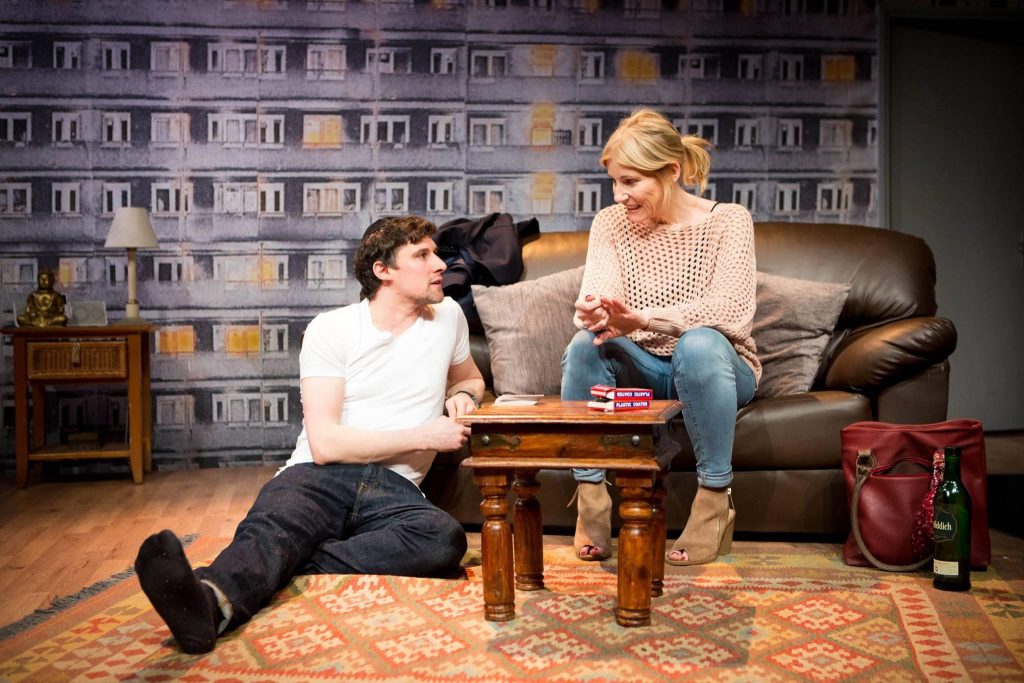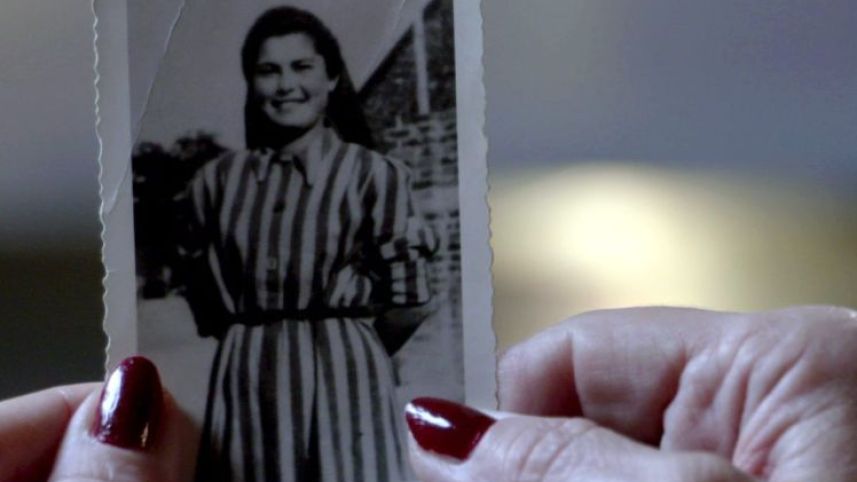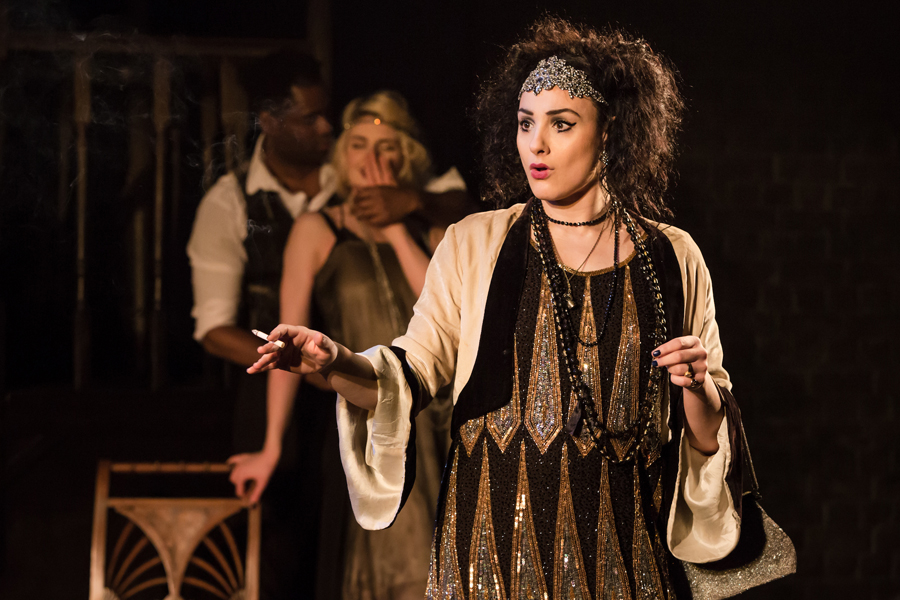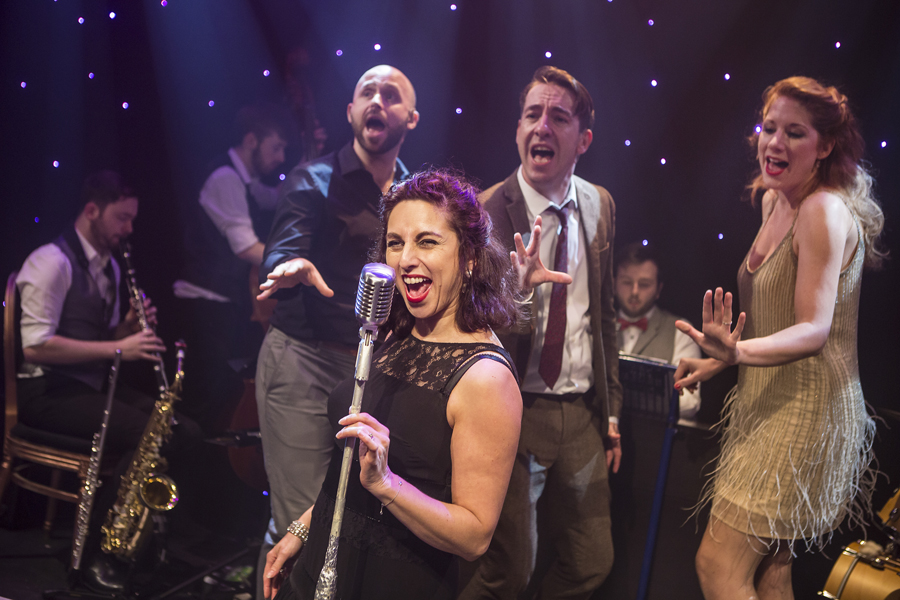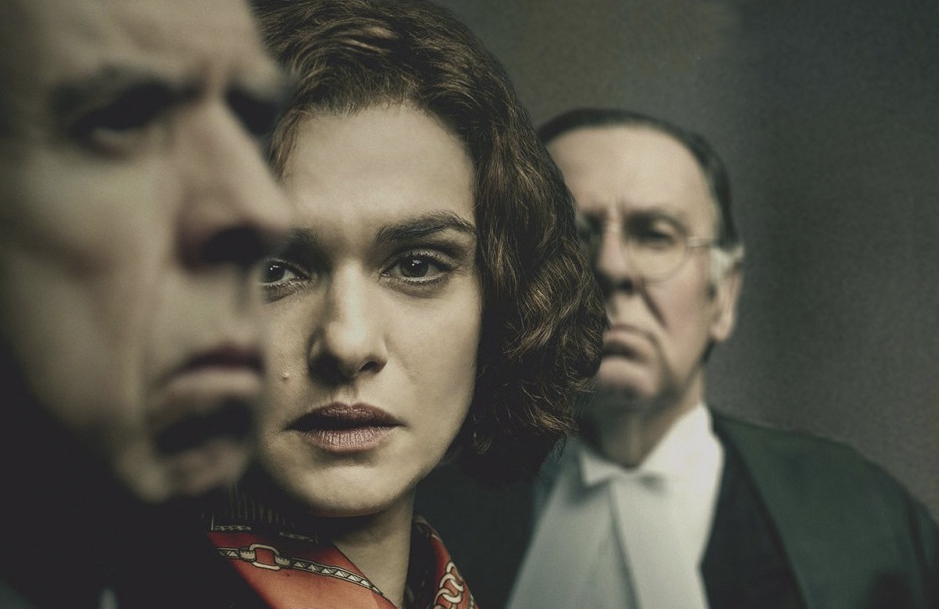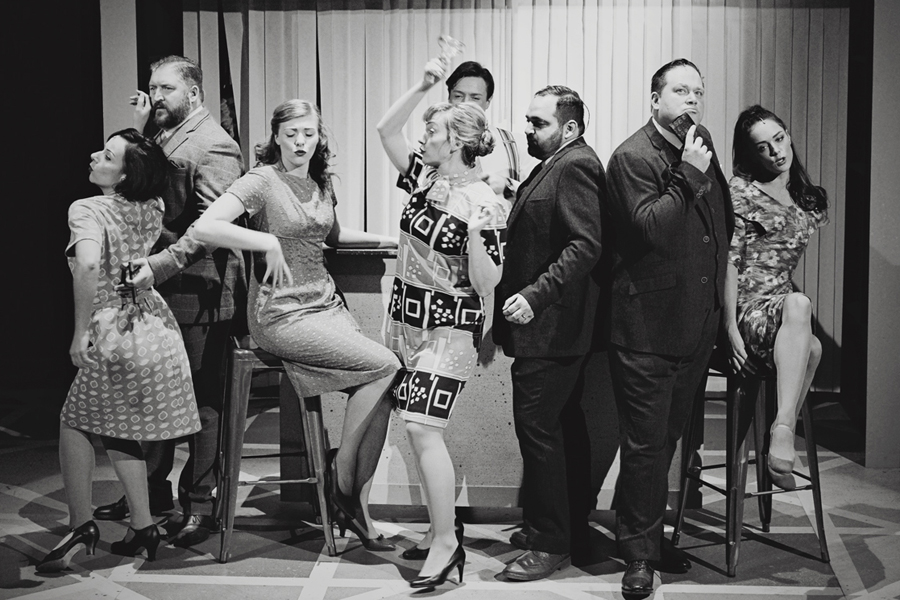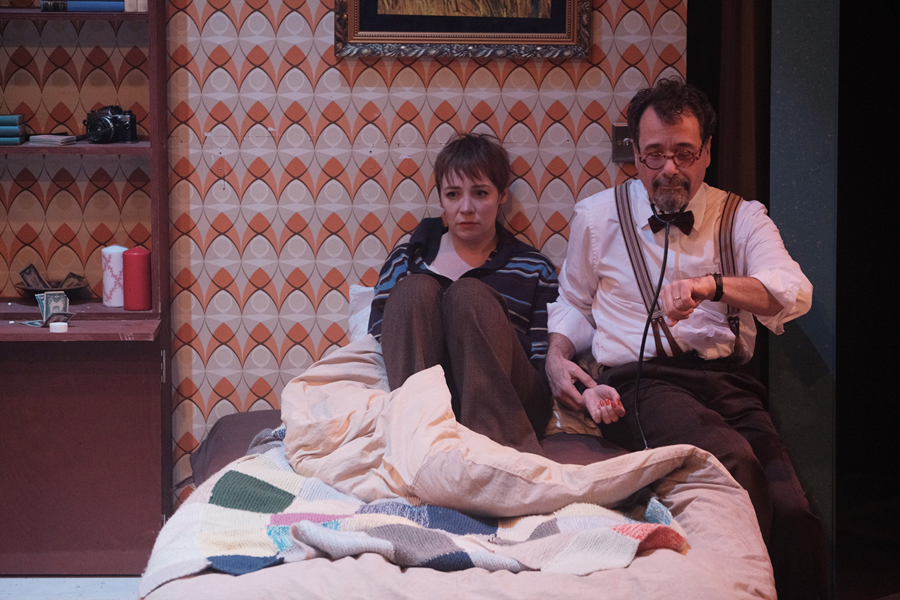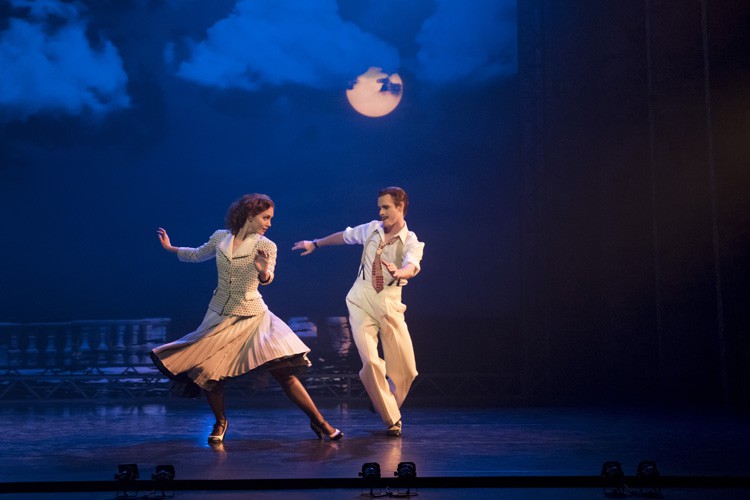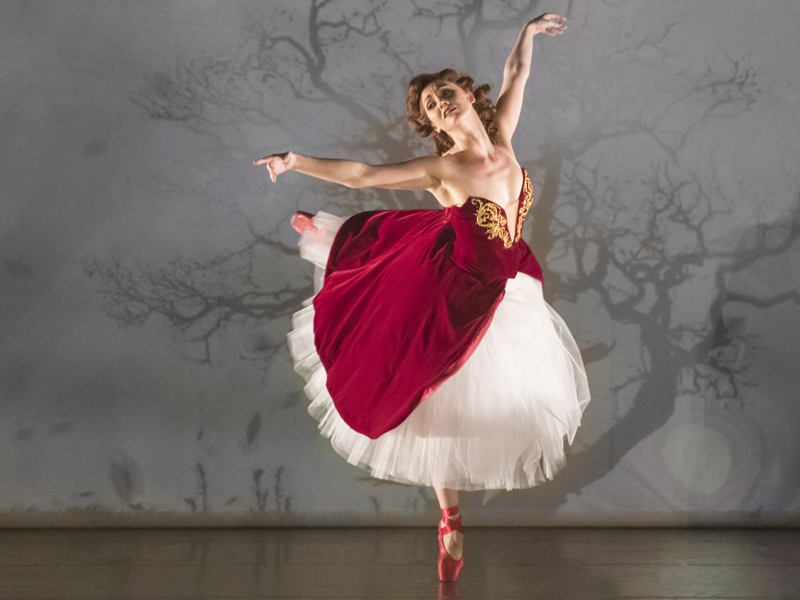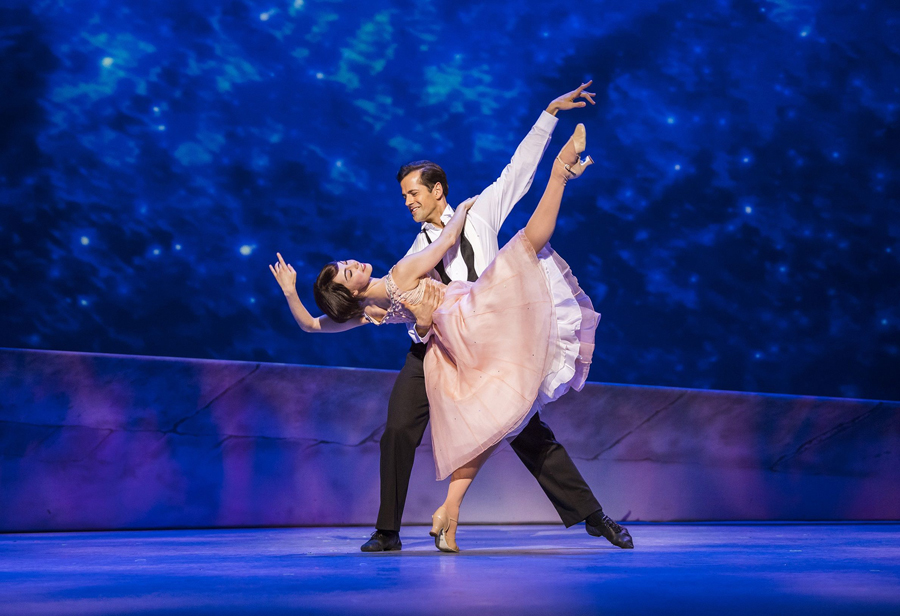 A lone figure limps into the light on a bare stage. Wounded in action, GI Adam Hochberg, confides his life, loves, hopes and fears and takes the audience back to newly-liberated Paris, 1945. David Seadon Young’s sardonic, worldly-wise American Jew in Paris is the first surprise in a show that adds depth to the light-as-air story of the much-loved film – without losing any of its charm and vitality.
A lone figure limps into the light on a bare stage. Wounded in action, GI Adam Hochberg, confides his life, loves, hopes and fears and takes the audience back to newly-liberated Paris, 1945. David Seadon Young’s sardonic, worldly-wise American Jew in Paris is the first surprise in a show that adds depth to the light-as-air story of the much-loved film – without losing any of its charm and vitality.
Director and choreographer Christopher Wheeldon and book writer Craig Lucas collaborated to develop the story – Hochberg is one of three young men who become comrades – the ’Three Musketeers’ – all sharing one beloved object, gifted ballerina Lise Dassin (equally gifted ballerina, Royal Ballet principal Leanne Cope, proving she can sing and act, with all the delicate vulnerability of the film’s Leslie Caron). She too is Jewish, surviving the war hidden by the cultured family of her second admirer Henri Baurel (Haydn Oakley, all Parisian charm), though she hides her personal tragedy: her parents are missing after the Holocaust. Aficionados of the film will guess the third admirer is the American of the title, ebullient demob-happy GI Jerry Mulligan – breath-taking triple threat Robert Fairchild doing rather more than making the Gene Kelly role his own.
The creative team build on the film’s glorious ballet and lush Gershwin brothers’ score, with daring extended dance sequences performed by this multi-talented 18-strong ensemble, peopling a hopeful Paris striving for normality after the traumas of occupation. Alongside the joyful expression of freedom, there’s a telling moment, the shaming of a woman accused of sleeping with the enemy, all without a word of dialogue. Lucas’s book is wonderfully witty, though, and his rounded characters are a gift to actors such as Jane Asher, who is superb as bossy matriarch Madam Baurel, and Zoë Rainey, a revelation as the irresistible force that is Milo Davenport, socialite arts patroness extraordinaire (based on real-life inspirational Jewish art collector Peggy Guggenheim).
The numbers are subtly staged to reveal plot and character. Take the complementary numbers, one in each act, featuring that trio of musketeers yearning after Lise. They get to sing first '‘S Wonderful' and then 'They Can’t Take That Away from Me' and for each the lyrics mean something different and personal. Just 15 versatile musicians realise Bill Elliott’s expansive orchestrations.
The performers inhabit the extraordinary evocation of Paris conjured by designer Bob Crowley’s 3D streets, buildings and landmarks (realised by 59 Productions Projection Design), the City of Light living up to its name thanks to lighting designer Natasha Katz’s palate of complementary glowing colour. Crowley dresses everyone with lovely period detail, especially the ensemble – gorgeous glamour for those essential Parisian showgirls and sophistication for Asher and Rainey. A ravishing, life-affirming joy.
By Judi Herman
Photos by Johan Persson
An American in Paris is currently booking until Monday 30 October. 7.30pm (Mon- Sat), 2pm (Sat, Wed). £17.50-£125. Dominion Theatre, W1T 7AQ. 0845 200 7982. www.anamericaninparisthemusical.co.uk



